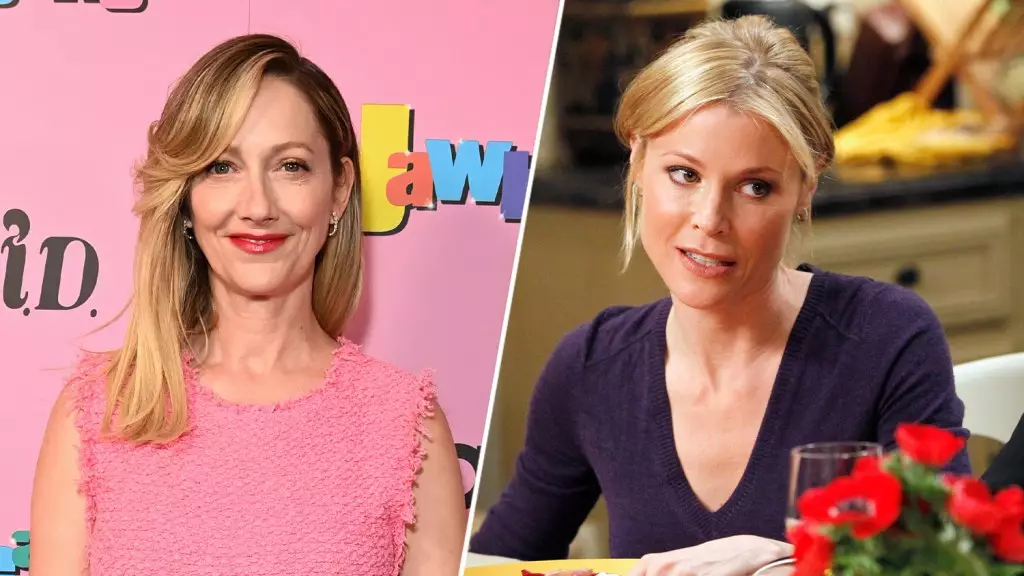In a recent conversation, actress Judy Greer took a deep dive into her journey during a pivotal moment in her career—one that led her to forgo an audition for the iconic sitcom *Modern Family*. This decision, made over fifteen years ago, has lingered in her thoughts as she reflects on how personal values shaped her professional trajectory. At that time in her life and career, Greer felt unprepared to step into the shoes of Claire Dunphy, a character that would ultimately be portrayed by Julie Bowen. Greer candidly admits that motherhood was not within her consideration at that juncture, stating, “I didn’t even want kids.” This critical perspective illustrates not just a professional choice, but a contemplation of lifestyle and identity that resonates with many contemporary artists.
This insight reveals the often-overlooked intricacies behind an actor’s decision-making process. For Greer, the prospect of portraying a mother of three, including a high schooler, created a sense of apprehension. In her discussion with Jesse Tyler Ferguson on his podcast, Greer revealed the weight of her decision, unearthing feelings of insecurity about being branded as “America’s mom.” It becomes evident that this was not merely a personal aversion but a struggle to balance the expectation of the roles she could inhabit with her aspirations for a broader, more adventurous acting career.
Greer’s reflections speak volumes about the challenges actors face regarding typecasting. When an actor lands a memorable role in a successful television series, it can often pigeonhole them into a specific archetype. Greer articulated this concern by stating that she felt the role of Claire Dunphy could limit her artistic range. In an industry that often relies on established star images, such apprehension is not uncommon.
She noted, “It felt so limiting compared to what I was doing already.” This remark reveals a conscientious approach to her craft—one that prioritizes an organic exploration of diverse characters over a single path that could define her for years to come. Greer was cognizant that the acclaim of a beloved television show might overshadow her multifaceted capabilities as an actress, which is particularly relevant in a landscape where versatility can be stifled by typecasting.
Moreover, Greer’s decision rooted itself deeply in her lifestyle preferences: her love for travel and the diverse experiences that film roles provided her. By choosing to eschew a typical “family” role in favor of a dynamic career in film, she aimed to maintain a lifestyle that resonated with her personal truth. It is an example of how personal and professional identities can converge, leading to decisions that, while seemingly trivial, hold the potential to shape careers irrevocably.
Meanwhile, Julie Bowen, who ultimately secured the role, shared her own doubts during her audition process. Participating in another podcast, she expressed feeling that her performance was subpar and emphasized her own concerns about securing the job. Bowen faced the reality of being heavily pregnant at the time, complicating the audition landscape for her. She acknowledged a desire for stability through a role she felt more confident pursuing, inadvertently highlighting the real pressures actors feel while building their careers.
The parallel paths of Greer and Bowen illustrate the unpredictable nature of the entertainment industry, where talent and timing often intertwine. *Modern Family*, after launching in 2009, would go on to become a cultural phenomenon, running for 11 successful seasons and garnering multiple Emmy Awards. Its impact on family comedies cannot be understated, showcasing the dynamics of modern family life in a refreshing and relatable manner.
Ultimately, Judy Greer’s retrospective on her decision to audition for *Modern Family* raises an enduring question—what if she had taken the plunge? While we can speculate on the consequences of her decision, Greer’s journey highlights the paramount importance of self-awareness and personal priorities in a volatile industry.
As actors navigate the complex waters of fame and identity, Greer serves as a reminder for creatives to remain true to their original ideals, even in the face of major opportunities. It’s not just about the roles they choose, but about how those choices align with their personal growth and artistic vision. As both actresses continue to flourish in their respective careers, their shared narratives are emblematic of the rich tapestry that defines the world of acting—filled with choices that intertwine personal aspiration with artistic legitimacy.


Leave a Reply